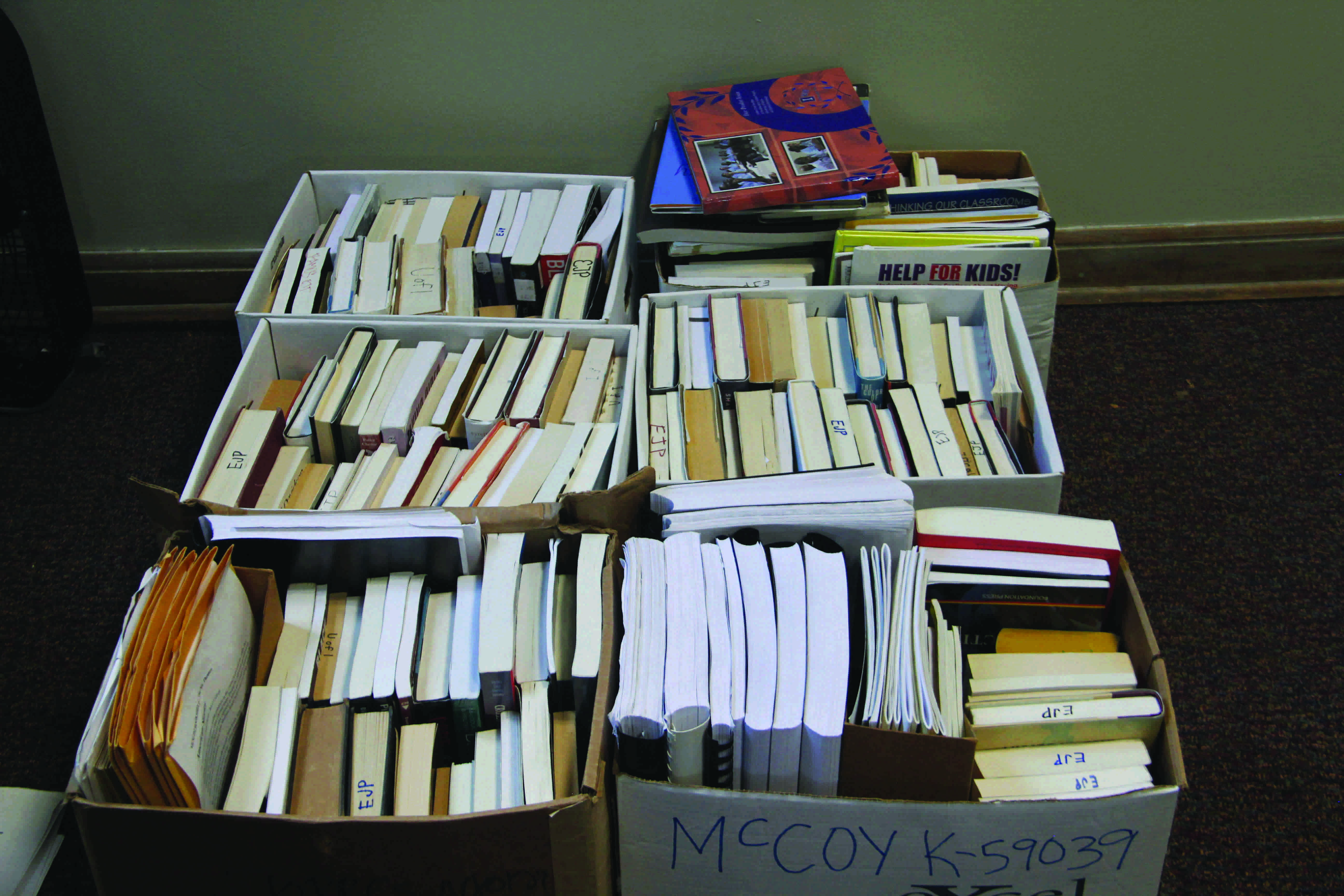Rethinking Our Classrooms Among Race and Education Books Censored at Illinois Prison
Illustrator: Education Justice Project

In late January, authorities at the Danville Correctional Center in east-central Illinois removed more than 200 titles from the prison’s library. One of the books that was confiscated was the Rethinking Schools book Rethinking Our Classrooms: Teaching for Equity and Justice, first published in 1994 and edited by Bill Bigelow, Linda Christensen, Stan Karp, Barbara Miner, and Bob Peterson.
When she found out about the book removal, Rebecca Ginsburg, director of the Education Justice Project and a University of Illinois professor, said, “I felt sick.” Ginsburg’s program offers classes to men incarcerated at Danville through the University of Illinois. The prison library includes about 4,000 volumes in two rooms.
The censored titles fell into three broad categories: race, prison life, and education. Rethinking Our Classrooms was in good company. Other titles prison authorities stripped from the library included Cornel West’s Race Matters; Maya Schenwar’s Locked Down, Locked Out: Why Prison Doesn’t Work and How We Can Do Better; Basil Davidson’s The Black Man’s Burden: Africa and the Curse of the Nation-State and The African Slave Trade; Lerone Bennett’s Before the Mayflower: A History of Black America; and Patricia Hill Collins’ Black Feminist Thought: Knowledge, Consciousness, and the Politics of Empowerment.
Along with Rethinking Our Classrooms, education materials pulled from the prison library included 16 issues of the venerable education magazine Radical Teacher; two of Jonathan Kozol’s books, The Shame of the Nation and Death at an Early Age; Beverly Daniel Tatum’s Why Are All the Black Kids Sitting Together in the Cafeteria? And Other Conversations About Race; Venus Evans-Winters’ Teaching Black Girls: Resiliency in Urban Classrooms; and Ann Arnett Ferguson’s Bad Boys: Public Schools in the Making of Black Masculinity.
Many of the authors of censored books made statements in solidarity with the Education Justice Project and the prisoners it serves. Illinois Newsroom’s Lee V. Gaines, who first reported on the story, interviewed a number of the authors whose books were removed from the prison.
“It seems to me that the books that are being removed . . . all of them deal with empowerment in some way. Certainly, my book does,” said Beverly Daniel Tatum. “It talks about understanding what racism is, how racism impacts us individually and collectively, and ultimately what we can do to break the cycle of racism. If for some reason you don’t want people to learn about that, you would remove that book.”
*** Buy banned books! Click here to purchase a copy of Rethinking Our Classrooms!***
Another of the removed books was Jacqueline Woodson’s Visiting Day, about a young girl who visits her father in prison.
“It’s heartbreaking. And it’s not surprising,” Woodson told Gaines. “I think we . . . live in a system where there is a prison industrial complex, and Black and Brown bodies are being used to manufacture stuff, and be cheap labor. And because of that, of course they’re not going to want them to be empowered; of course they’re not going to want them to learn more; of course they’re not going to want them to have the tools they need for the outside world; of course they’re not going to want them to see mirrors of themselves in literature.”
To defend the book removal, prison authorities directed reporters to their policy that bans material that is sexually explicit or otherwise “obscene,” encourages hatred or violence, or is “otherwise detrimental to security, good order of the facility.”
Ginsburg said that over the course of its 10-year existence, the prison program has enrolled 221 incarcerated students in 300- to 400-level University of Illinois courses in multiple disciplines, earning college credit or certificates in humanities or education studies.
The Education Justice Project has recently launched the Freedom to Learn Campaign, so people can express support for the education work going on in Illinois prisons.
Ginsburg told Rethinking Schools that “this incident has felt like an assault, but it has done so much good in bringing us closer to our allies and to people and work we admire.”
Find out more about the Freedom to Learn Campaign here: https://freedom-to-learn.net
Subscribe to Rethinking Schools magazine at www.rethinkingschools.org/subscribe

